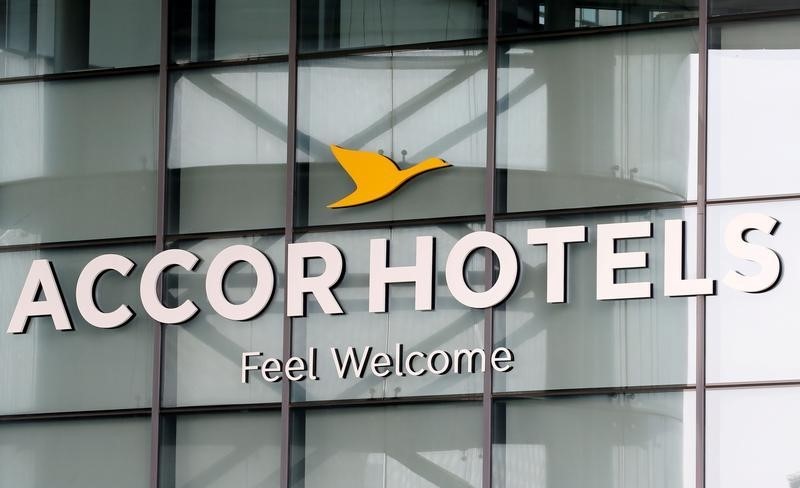By Geoffrey Smith
Investing.com -- The hotel industry began the long road back to some kind of normality in the third quarter, but figures from Europe’s two biggest operators show just how long it will be.
Revenue per available room, the key metric for hotel investors, was down 53% at InterContinental Hotels Group (LON:IHG), which owns the Holiday Inn and associated franchises in the three months, and was down 63% at Accor (PA:ACCP), owner of the Ibis and Sofitel chains among others.
The figures, while dismal, were in both cases a significant improvement from the second quarter, and Accor’s shares in particular profited, rising 4.2% by mid-morning in Europe on Friday after CEO Sebastien Bazin said that the worst was behind the company. IHG stock fell 1.3%.
However, this is a pallid optimism. Even Bazin’s group is predicting that bookings won’t return to pre-pandemic levels until 2023. In the meantime, Bazin told France 24, "60% of the hotel industry is distressed, 40% is optimistic” as they face the prospect of full winter of Covid 19.
On Thursday, France had extended its curfew to an area covering three-quarters of its population after posting its highest daily figure yet for new infections. In Spain, Germany and the U.K., all key markets, officials bemoan that the virus is currently out of control, despite various attempts to restrict non-essential social contact. Bazin urged European governments to be more clear and coordinated in their guidelines on travel, after an abortive summer tourism season when official guidelines changed at dizzying speed and with little or no consistency.
IHG CEO Keith Barr acknowledged that “uncertainty remains regarding the potential for further improvement in the short term.”
Barr’s conservatism is an implicit acknowledgment that he expects the U.S. market, which accounts for more of IHG’s business, to broadly follow the European one as the latest wave of the pandemic gains force there. That could leave Asia as the sole ray of sunshine for both companies. At IHG, RevPAR has already recovered to be down only 23% year-on-year in Greater China.
Both CEOs strove to put a brave face on the medium term, however. And not without reason: conventional wisdom says that when the vaccines are finally distributed and fear of public spaces recedes, hotel stocks should be among the best performers around. Pent-up demand and fading tail risks should allow a violent reversion to the mean.
But is there anything to hope for beyond that? The pre-pandemic assumptions of endless growth in world tourism will have to be tested anew as life returns to normal, and business travel budgets will remain crimped long after the vaccines arrive. IHG has in general created value over the last two decades but Accor hasn’t posted a new all-time high since 2007, and even though Bazin is finally pushing the group towards an ‘asset light’ model that should generate higher returns on equity and demand a higher valuation, the onus is squarely on him to prove it.
Talking to Bloomberg TV earlier, Bazin dismissed the notion of M&A activity, which would offer the quicker path to capacity rationalization and higher margins. That may disappoint some, but the truth is that Accor’s current valuation doesn’t allow to hope for an active role in any such consolidation. The question is only whether or not Accor is 'in play'.
IHG may have the better opportunities for driving the process, but Barr gave no hint of anything on the horizon in his statement. For investors, holding the stocks continues to require even more patience and tolerance of uncertainty than for most other assets.
